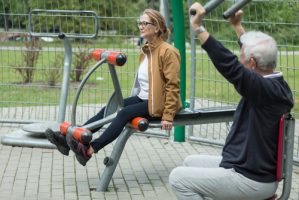Articles
SIRC articles provide evidence-based and actionable insights from sport researchers, athletes, coaches, sport organizations and thought leaders to advance sport in Canada.
Featured Article
Concussions in Sport: What Parents Need to Know About the Youngest Athletes
Each year in Canada, more than 200,000 athletes experience a concussion. The numbers are striking, and so is the fact that until recently, the youngest athletes were almost absent from research and public conversation about these injuries. Dr. Miriam Beauchamp is a professor at the University of Montreal, a researcher at Sainte-Justine Hospital, and Canada…

Search Articles

Between productivity losses and direct healthcare costs, the worldwide economic burden of physical inactivity was $67.5 billion in 2013. People aren’t moving enough and are sitting too much, contributing to what many call a global pandemic of physical inactivity. Results...

SIRC hosts the 11th annual Sport Canada Research Initiative (SCRI) Conference!
September 13, 2017
|
About SCRI 2017 Despite sport having endless benefits for your health, social well-being, and everyday life, many individuals are still hesitant to participate. In order to resolve this itching problem of how to get more people involved in sport, we...

Sport Participation on a Budget
September 6, 2017
| Michelle Caron
The new school year is on the horizon and parents want to make sure that their children stay active and healthy. One of the easiest ways to help that along is by signing them up for a sport. A 2015...

The Implications of Screen Time for Young Children
August 30, 2017
| Lily Dong, SIRC
In June, the Canadian Paediatric Society released new screen time guidelines for children under 5 years old. A child’s first experiences with screens can be habit-forming, with lasting implications. While there are potential benefits associated with mindful screen use among...

Why Those Who Exercise Have a Good Head on Their Shoulders
August 23, 2017
| Lily Dong, SIRC
Exercise doesn’t just improve physical health: it also benefits brain health through increased brain function and resistance to neurodegenerative diseases. One of the key players in this relationship is brain-derived neurotrophic factor (BDNF). What is Brain-Derived Neurotrophic Factor (BDNF)? Neuroplasticity...

The Importance of Risky Play for Physical, Social, and Emotional Development
August 16, 2017
| Lily Dong, SIRC
Engaging in risky play is a natural part of a child’s development. In addition to increasing physical activity and developing social skills, risky play is a way by which children learn to adapt to their environments and fears, and may...

Fitness Trackers and Counting Steps: Marketing Ploy or Health Tool?
August 9, 2017
| Lily Dong, SIRC
Fitness trackers have become increasingly popular among both people who are new to exercise, and those who have been long-time athletes. Current wrist-worn trackers can function as watches, heart rate monitors, sleep trackers, calorie counters, GPSs, and even as phones,...

Active Parks, Active People?
July 12, 2017
| Lily Dong, SIRC
One of the top recommended strategies to increase physical activity is to increase public access to places where people can engage in physical activity. Installing free outdoor fitness equipment to create “active parks” is one way some cities have targeted...
Advancing Concussion Education at the Community Level
July 4, 2017
| SIRC and the Ottawa Sport Council
Participation in sport can be an integral, rewarding component of life. However, sport concussions can too easily derail the benefit of both competitive and casual exercise—instances that can be avoided through proper education and preventative measures. Sport is especially advantageous...

Goalball, Snowsnake, Disc Golf, and more: 150 Activities to Celebrate 150 Years
June 28, 2017
| Lily Dong, SIRC
Happy Birthday, Canada! “Sit less and move more”: ParticipACTION, a Canadian non-profit organization, aims to engage people across the country to make physical activity a key component to everyday life. In celebration of Canada’s 150th this year, ParticipACTION created its...